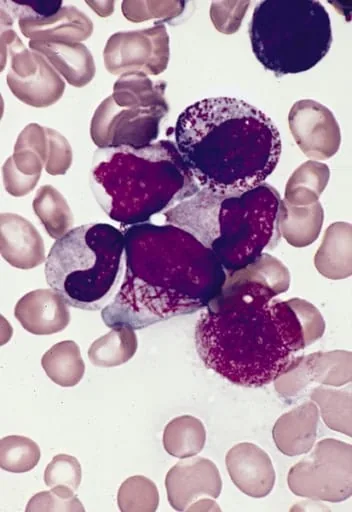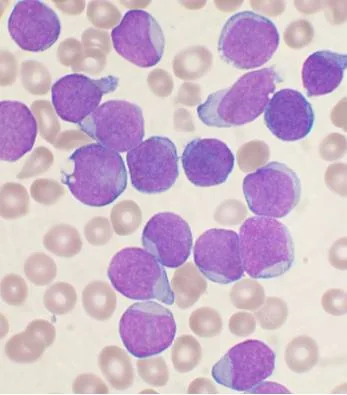Microfluidics fighting against Leukemia: MEDLEM
Five European organizations from Serbia, Germany, and France and three others from New Zealand, Australia, and Thailand will contribute to the MEDLEM Project to make significant breakthroughs in research against leukemia.
This project is completed now. If interested, feel free to contact us.
Leukemia treatment: introduction

Leukemia is a group of cancers that starts in blood-forming tissue and causes large numbers of abnormal blood cells to be produced and enter the bloodstream.
Worldwide, over 250,000 people are diagnosed with leukemia each year, accounting for 2.5% of all cancers. An estimated 75,000 new patients of leukemia will be diagnosed in Europe each year (around 40,000 in the USA).
All age groups can be affected; leukemia is the most common pediatric tumor (35% of cancers in children aged 0–14 years).
The breakthroughs in diagnostics, therapy, and improvements to therapy protocols have all led to long-term curing, with an overall five-year survival rate of almost 80% in children with Acute Lymphoblastic Leukemia (ALL).
There is an utmost need for new treatments and new high-tech devices that can help in customized therapy for leukemia. The MEDLEM Project addresses this challenge.
Cost-effective microfluidic electronic devices for optimal drug administration: project description

Implementing the MEDLEM Project will help detect high-risk patients, especially children, and improve the human condition during invasive treatment, which is chemotherapy. Its overall goal is to increase five and ten-year survival rates of patients with leukemia in Europe and globally.
The MEDLEM Project involves three research areas (Biomechanics, Medicine/Pharmacy, and Electronics) in a unique knowledge fusion to improve leukemia treatments.
Microfluidic devices will be designed and optimized, reaching breakthroughs in modeling, drug administration, and improvements in therapy protocols.
Furthermore, microfluidic devices that will manage drug delivery will be low-cost, lightweight, and shock-resistant. Long-term, high-quality research providing improvement and important progress in leukemia treatments will be built up.
Intensive scientific exchanges will be performed, which will enable the establishment of a new, standard, worldwide research area.
Scientific cooperation between Europe and developing countries should contribute to global approaches and solutions to this societal challenge.
Knowledge reached in the field will increase awareness of innovative solutions for leukemia treatment, providing significant benefits for European and worldwide society.
Edited by Lauren Durieux
This project has received funding from the European Union’s Horizon 2020 research and innovation programme under the Marie Sklodowska-Curie grant agreement No 690876 (MEDLEM project).

